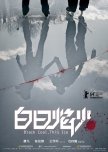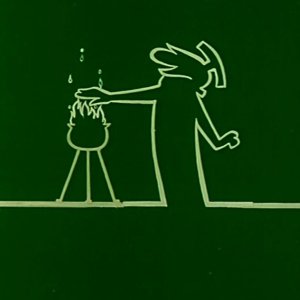

KIBA, like Trillion Game is about a power play between people who try to outmanouvre each other -- playing the late-stage capitalist game.
KIBA has a few more layers of deception, even though it's only a film, not a series. The writing is much tighter, the plot much faster.
In both titles, we have morally grey main characters, as well as at least one idealistic person, who provides a good balance.
KIBA has a few more layers of deception, even though it's only a film, not a series. The writing is much tighter, the plot much faster.
In both titles, we have morally grey main characters, as well as at least one idealistic person, who provides a good balance.


Both lean heavily in the the classical detective genre -- genius and eccentric main character with sidekicks, one case per epiosde, focused on solving the crime (or unlocking the room, in Kagi's case), not a lot of character development or other plot.
Kagi No Kakatta is less slapsticky and has less puns but there are also quite a lot of Japanese-comedy scenes.
Kagi No Kakatta is less slapsticky and has less puns but there are also quite a lot of Japanese-comedy scenes.


Though very different in tone and length, both titles can help non-Japanese people get a bit of insight on how the dead and the people who work with them (pathologists and norikan) are regarded in Japan.


Both stories are gritty, very realistic crime dramas. Both take place in a cold northern Chinese town in the midst of winter. The pace of both stories is slow, it's more about the characters than about the crime itself.
Especially the first few episodes of Double Tap reminded me of Black Coal, Thin Ice -- even though the stories differ greatly, the feeling was kind of similar.
Especially the first few episodes of Double Tap reminded me of Black Coal, Thin Ice -- even though the stories differ greatly, the feeling was kind of similar.


 2
2










